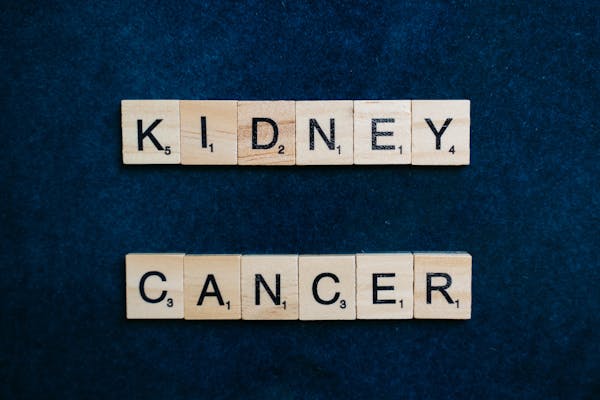Chronic Kidney Disease (CKD) is a progressive and often silent condition that affects millions of people worldwide. It is characterized by a gradual loss of kidney function over time, which can eventually lead to kidney failure or the need for dialysis or transplantation. The kidneys are essential organs that filter waste and excess fluids from the blood, maintain electrolyte balance, and produce hormones that regulate blood pressure and red blood cell production. When kidney function deteriorates, these vital processes are disrupted, leading to a wide range of symptoms. Identifying the symptoms of Chronic Kidney Disease early is crucial for managing the condition and preventing further complications.

We will explore the symptoms of Chronic Kidney Disease, their progression, and how they relate to the different stages of the disease. We will also discuss the underlying causes of CKD and the importance of early diagnosis and treatment.
What Is Chronic Kidney Disease?
Chronic Kidney Disease is a long-term condition where the kidneys are unable to function properly over a period of months or years. This condition is often categorized into five stages based on the glomerular filtration rate (GFR), which measures how well the kidneys are filtering waste products from the blood. CKD can be caused by a variety of factors, including:
- Diabetes: High blood sugar levels can damage blood vessels in the kidneys, leading to CKD.
- Hypertension: High blood pressure can cause damage to the kidneys over time.
- Glomerulonephritis: Inflammation of the kidney’s filtering units can lead to CKD.
- Polycystic Kidney Disease: A genetic disorder characterized by the growth of numerous cysts in the kidneys.
- Obstructive Nephropathy: Blockages in the urinary tract that impair kidney function.
The symptoms of Chronic Kidney Disease typically develop gradually and may go unnoticed in the early stages. This slow progression makes CKD particularly dangerous, as significant kidney damage can occur before any symptoms are apparent.
Understanding the Symptoms of Chronic Kidney Disease
The symptoms of Chronic Kidney Disease are diverse and vary depending on the stage of the disease. In the early stages, many people may not experience any noticeable symptoms, while in the later stages, the symptoms can become more severe and affect multiple systems in the body. Below is a detailed examination of the common symptoms associated with each stage of CKD.
Stage 1 and Stage 2 CKD: Early Signs and Mild Symptoms
In the early stages of Chronic Kidney Disease, the symptoms are often subtle or nonexistent. Stage 1 and Stage 2 CKD are characterized by mildly reduced kidney function (GFR of 60-89 ml/min) and minimal or no symptoms. However, subtle changes in the body may occur that can serve as early warning signs:
- Fatigue and Tiredness
Individuals with CKD in its early stages may feel unusually tired or fatigued. This can occur as the kidneys are no longer filtering toxins as efficiently, leading to the accumulation of waste products in the body. Over time, these toxins can impair cellular energy production, leading to persistent fatigue. - Swelling (Edema)
The kidneys regulate fluid balance in the body, and in the early stages of CKD, fluid retention may occur, causing swelling in the hands, feet, ankles, and face. This is due to the kidneys’ reduced ability to remove excess sodium and water from the body. - High Blood Pressure
Elevated blood pressure can be both a cause and a symptom of CKD. In the early stages of the disease, the kidneys may struggle to regulate blood pressure, leading to hypertension. Conversely, long-term hypertension can also damage the kidneys and worsen CKD. - Changes in Urination Patterns
Changes in urination are one of the earliest signs of kidney dysfunction. This may include an increased or decreased frequency of urination, especially at night (nocturia), or changes in the color and consistency of urine (e.g., foamy or dark-colored urine). While these symptoms may not be alarming in isolation, they could indicate early kidney damage. - Loss of Appetite
Some individuals may experience a decrease in appetite due to the early build-up of waste products in the bloodstream, which can cause nausea and a general feeling of being unwell. - Difficulty Concentrating
A subtle cognitive decline, including difficulty concentrating and a lack of mental clarity, may be present as toxins build up in the blood.
Stage 3 CKD: Moderate Kidney Function Decline
As CKD progresses into Stage 3, the loss of kidney function becomes more noticeable, with a GFR between 30-59 ml/min. At this stage, individuals are likely to experience more pronounced symptoms of Chronic Kidney Disease, including:
- More Pronounced Fatigue
In Stage 3 CKD, the build-up of toxins in the blood, known as uremia, becomes more significant, leading to more profound fatigue. Many individuals report a sense of exhaustion that does not improve with rest. - Swelling and Fluid Retention
Swelling becomes more noticeable in Stage 3 CKD as the kidneys continue to lose their ability to excrete excess fluid. The swelling may be most noticeable in the lower extremities and around the eyes. - Muscle Cramps and Weakness
Electrolyte imbalances, particularly in potassium and calcium, can occur as kidney function declines. These imbalances can lead to muscle cramps, twitches, and generalized weakness. - Back Pain
Some people with CKD report experiencing dull, aching pain in the lower back or sides, where the kidneys are located. This pain is not always present, but it can be a symptom of underlying kidney issues. - Shortness of Breath
Fluid retention can also affect the lungs, leading to a condition known as pulmonary edema. This can cause shortness of breath, especially during physical activity or when lying flat. - Itching and Dry Skin
The build-up of waste products in the bloodstream can lead to skin issues, including persistent itching (pruritus) and dryness. This is often due to high levels of phosphorus in the blood, which the kidneys can no longer excrete efficiently. - Metallic Taste and Bad Breath
As toxins accumulate in the body, some individuals experience a metallic taste in their mouth or notice that their breath smells like ammonia. This symptom is also related to uremia, a condition caused by high levels of urea in the blood. - Sleep Disturbances
Individuals may also experience sleep disturbances due to discomfort from other symptoms, such as itching, or as a side effect of fluid overload.
Stage 4 CKD: Severe Kidney Function Decline
Stage 4 CKD is characterized by a GFR of 15-29 ml/min, indicating a severe reduction in kidney function. At this stage, the symptoms of Chronic Kidney Disease become more severe, and individuals may experience the following:
- Severe Fatigue and Weakness
The fatigue experienced in earlier stages becomes more intense, and many individuals report feeling constantly drained of energy. This is largely due to anemia, a common complication of CKD. The kidneys produce a hormone called erythropoietin, which stimulates red blood cell production. As kidney function declines, erythropoietin levels drop, leading to anemia and severe fatigue. - Significant Swelling
Fluid retention continues to worsen in Stage 4 CKD, leading to significant swelling in the legs, ankles, and face. The swelling can be uncomfortable and may affect mobility. - Nausea and Vomiting
The build-up of toxins in the blood can also lead to gastrointestinal symptoms, including nausea and vomiting. Many individuals with advanced CKD report a loss of appetite and unintentional weight loss. - Bone Pain and Fractures
As kidney function declines, the body’s ability to balance calcium and phosphorus levels is impaired. This can lead to a condition known as renal osteodystrophy, where bones become weak and brittle, increasing the risk of fractures and bone pain. - Concentration and Memory Issues
The accumulation of waste products in the blood can also affect brain function, leading to difficulty concentrating, memory issues, and a general feeling of mental cloudiness. This is often referred to as “uremic encephalopathy.” - Insomnia and Sleep Disturbances
Many individuals with CKD report difficulty sleeping, which can be exacerbated by restless legs syndrome (RLS) or sleep apnea. Both conditions are common in people with kidney disease and can further contribute to fatigue. - Skin Changes
Skin becomes increasingly dry and may exhibit darkening or discoloration. Uremic frost may appear as a white, powdery residue on the skin due to the crystallization of waste products.
Stage 5 CKD: End-Stage Renal Disease (ESRD)
Stage 5 CKD, also known as End-Stage Renal Disease (ESRD), occurs when kidney function is critically impaired, with a GFR of less than 15 ml/min. At this stage, the kidneys are no longer able to function without dialysis or a kidney transplant. The symptoms of Chronic Kidney Disease at this stage are severe and can be life-threatening if not managed appropriately.
- Severe Fatigue and Weakness
Fatigue becomes overwhelming, and individuals in Stage 5 CKD often struggle to perform basic daily activities. This is due to the combination of anemia, electrolyte imbalances, and the accumulation of toxins in the bloodstream. - Severe Nausea and Vomiting
Gastrointestinal symptoms, including severe nausea, vomiting, and a complete loss of appetite, are common in ESRD. Many individuals report a constant feeling of being unwell and may require nutritional support. - Severe Swelling and Fluid Overload
Fluid retention becomes life-threatening in Stage 5 CKD, as the kidneys are unable to excrete excess water and sodium. This can lead to pulmonary edema (fluid in the lungs), heart failure, and difficulty breathing. - Itching and Skin Changes
Itching becomes more intense in ESRD, and individuals may notice changes in their skin, such as dryness, darkening, or the appearance of white crystals (uremic frost) on the skin. These symptoms are caused by the high levels of waste products in the blood. - Confusion and Seizures
In severe cases, the accumulation of toxins can affect the brain, leading to confusion, seizures, and even coma. This is known as uremic encephalopathy and is a medical emergency. - Heart Issues
People with Stage 5 CKD are at increased risk of cardiovascular problems, including heart disease and arrhythmias. High levels of potassium and fluid overload can contribute to these issues, leading to potentially life-threatening situations. - Comorbid Conditions
Individuals with ESRD often have other comorbid conditions, such as diabetes, hypertension, or heart disease, which complicate the management of their CKD and its symptoms.
The Importance of Early Diagnosis and Treatment
Recognizing the symptoms of Chronic Kidney Disease early is crucial for slowing the progression of the disease and preventing complications. Regular check-ups, blood tests, and urine tests can help identify CKD in its initial stages, allowing for timely intervention. Some key strategies for managing CKD include:
- Lifestyle Modifications
Implementing lifestyle changes can significantly impact kidney health. These may include:- Eating a balanced diet low in sodium, phosphorus, and potassium.
- Engaging in regular physical activity.
- Maintaining a healthy weight.
- Quitting smoking and limiting alcohol intake.
- Controlling Blood Sugar and Blood Pressure
For individuals with diabetes or hypertension, closely monitoring and managing blood sugar and blood pressure levels is vital. Medications may be prescribed to help achieve these goals. - Medications
Depending on the individual’s symptoms and underlying conditions, various medications may be used to manage CKD, including:- Antihypertensives: Medications to lower blood pressure.
- Erythropoiesis-Stimulating Agents (ESAs): To treat anemia by stimulating red blood cell production.
- Phosphate Binders: To help control phosphorus levels in the blood.
- Regular Monitoring
Regular follow-ups with healthcare providers to monitor kidney function and adjust treatment plans as necessary are essential in managing CKD. - Preparation for Dialysis or Transplantation
In the later stages of CKD, it’s crucial to discuss options for renal replacement therapy, such as dialysis or kidney transplantation, with a healthcare provider. Early planning can help improve outcomes and quality of life. - Education and Support
Educating patients about CKD, its symptoms, and management options can empower them to take an active role in their health. Support groups and counseling can also provide emotional support during the challenges of living with CKD.
Conclusion
Chronic Kidney Disease is a serious condition that requires awareness, early diagnosis, and proactive management. The symptoms of Chronic Kidney Disease can range from mild to severe and may vary widely among individuals. Understanding these symptoms and their progression is vital for recognizing the disease early and implementing effective treatment strategies.
Individuals at risk for CKD, including those with diabetes, hypertension, or a family history of kidney disease, should be vigilant about monitoring their health and seeking regular medical evaluations. By addressing risk factors, making lifestyle changes, and working closely with healthcare providers, individuals can manage CKD effectively and preserve kidney function for as long as possible.
Recognizing the early signs of CKD and understanding the symptoms of Chronic Kidney Disease is essential for maintaining health and improving outcomes. With proper management, individuals with CKD can lead fulfilling lives, even in the face of this challenging condition.









